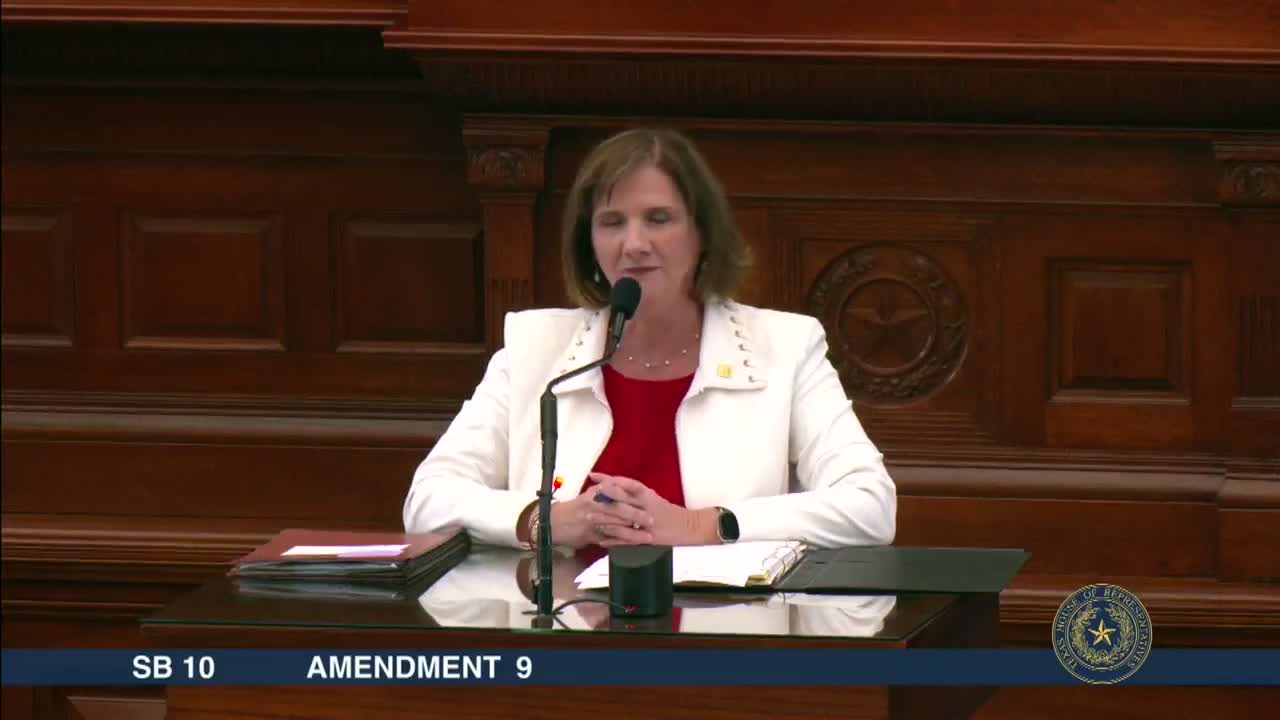Texas Lawmakers Debate Local Control in Displaying Ten Commandments in Schools
May 25, 2025 | HOUSE OF REPRESENTATIVES, Legislative, Texas
This article was created by AI summarizing key points discussed. AI makes mistakes, so for full details and context, please refer to the video of the full meeting. Please report any errors so we can fix them. Report an error »

In a recent Texas Legislature meeting held on May 25, 2025, lawmakers engaged in a spirited debate regarding local control in education, particularly concerning the display of the Ten Commandments in schools. The discussion highlighted the ongoing tension between state mandates and local decision-making authority.
Representative Turner emphasized the importance of allowing school districts the autonomy to decide whether to display the Ten Commandments, framing it as a matter of local governance. He argued that independent school districts should have the discretion to determine what is best for their students and communities, reinforcing the idea that local elected officials are accountable to their constituents. This perspective aligns with previous legislative efforts that granted local control over similar issues, such as school prayer and the role of chaplains in schools.
However, the debate took a turn when Representative Noble moved to table an amendment that would have further clarified the conditions under which the Ten Commandments could be displayed. The motion to table was ultimately successful, with 72 votes in favor and 54 against, effectively halting the amendment's progress. This decision reflects a broader legislative trend towards limiting amendments that seek to enhance local control in educational settings.
The meeting also featured procedural discussions, including points of order raised by other representatives, indicating the complexity and contentious nature of the legislative process. As the session continues, the implications of these discussions on local governance and educational policy in Texas remain to be seen, particularly as communities grapple with the balance between state oversight and local autonomy.
Overall, the meeting underscored the significance of local decision-making in education and the ongoing debates surrounding the role of religious expressions in public schools, a topic that resonates deeply within Texas communities. As lawmakers navigate these issues, the outcomes will likely shape the educational landscape and community values across the state.
Representative Turner emphasized the importance of allowing school districts the autonomy to decide whether to display the Ten Commandments, framing it as a matter of local governance. He argued that independent school districts should have the discretion to determine what is best for their students and communities, reinforcing the idea that local elected officials are accountable to their constituents. This perspective aligns with previous legislative efforts that granted local control over similar issues, such as school prayer and the role of chaplains in schools.
However, the debate took a turn when Representative Noble moved to table an amendment that would have further clarified the conditions under which the Ten Commandments could be displayed. The motion to table was ultimately successful, with 72 votes in favor and 54 against, effectively halting the amendment's progress. This decision reflects a broader legislative trend towards limiting amendments that seek to enhance local control in educational settings.
The meeting also featured procedural discussions, including points of order raised by other representatives, indicating the complexity and contentious nature of the legislative process. As the session continues, the implications of these discussions on local governance and educational policy in Texas remain to be seen, particularly as communities grapple with the balance between state oversight and local autonomy.
Overall, the meeting underscored the significance of local decision-making in education and the ongoing debates surrounding the role of religious expressions in public schools, a topic that resonates deeply within Texas communities. As lawmakers navigate these issues, the outcomes will likely shape the educational landscape and community values across the state.
View full meeting
This article is based on a recent meeting—watch the full video and explore the complete transcript for deeper insights into the discussion.
View full meeting
